
Just Released
Twining, Benjamin S., Saito, Mak A., Santoro, Alyson E., Marchetti, Adrian, Levine, Naomi M., "US National BioGeoSCAPES Workshop Report", 2023-01-09, DOI:10.1575/1912/29604, https://hdl.handle.net/1912/29604
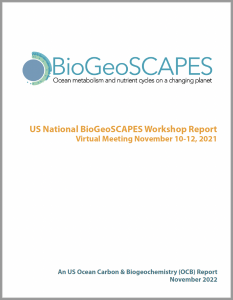
Laying the foundation for a potential future BioGeoSCAPES program: Assessing needs and capabilities for studying controls on ocean metabolism through integrated omics and biogeochemistry
November 10-12, 2021
virtual, 13:00-16:30 ET each day
PIs: Ben Twining, Mak Saito, Alyson Santoro, Adrian Marchetti, Naomi Levine
PAGE INDEX
Basic info
Daily agenda - with recording links
Poster list
Objectives and Outcomes
Participant list
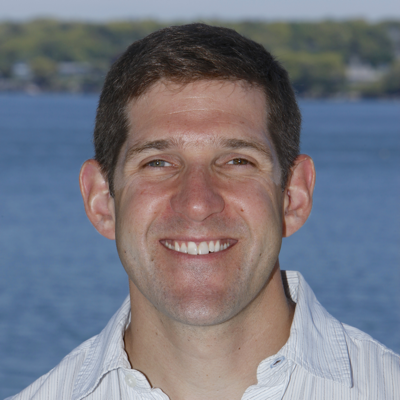
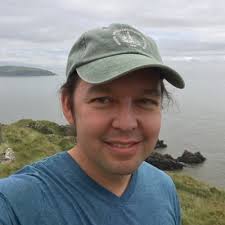
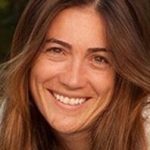
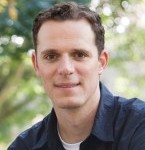
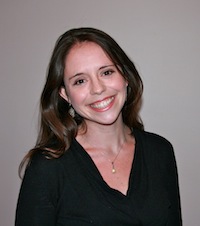
DRAFT WORKSHOP AGENDA
All times in ET, from 13:00-16:30 each day
| Day 1 Wednesday, November 10 |
||
| 13:00 | Welcome, OCB Code of Conduct, and meeting logistics | Naomi Levine |
| 13:10 | BioGeoSCAPES: A brief history |
Adrian Marchetti |
| Lessons from other international programs | Alyson Santoro | |
| BioGeoSCAPES community building in other countries | Maite Maldonado | |
| Motivation for BioGeoSCAPES and goals for this meeting | Ben Twining | |
| Q&A | ||
| Watch recording | ||
| 14:15 | Breakout discussions
What existing communities and networks should we connect with (that are not shown in this diagram)? List examples of good community building efforts within (and beyond) the oceanographic community we can learn from What are potential barriers to interdisciplinarity and inclusivity in a global effort like this and how can we address them? |
|
| 15:00 | Summary and homework for Day 2 | |
| 15:00-16:30 | Poster session on gather.town | |
| Day 2 Thursday November 11 |
||
| 13:00 | Welcome: Summarize day 1 breakouts, review plan for the day | Alyson Santoro Adrian Marchetti |
| 13:15- 14:00 | Poster session on gather.town | |
| 14:00 | Updates from intercalibration activities -Overview of BGS intercalibration -Update on proteomics intercalibration -Update on NA omics intercalibrationWatch recording - Part 1 |
Mak Saito Paul Berube |
| 14:30 | Breakout Discussions
What hypotheses could be addressed by BGS program, towards goal of coalescing around high-level motivations? What are compelling questions that can’t be addressed by a single group and really require a coordinated program? What are the key intercalibration needs to help support and realize our science goals? |
|
| 15:00 | Break | |
| 15:10 | Talks: Examples of potential BioGeoSCAPES science questions | Scott Gifford Bethanie Edwards Julie Granger Scott McCain |
| 16:10 | Summary and feedback via Mentimeter and homework for day 3 | |
| Day 3: Friday November 12 - on Zoom |
||
| 13:00 | Welcome and summarize day 2 breakouts | Ben Twining Naomi Levine |
| 13:15 | Talks: Examples of potential BioGeoSCAPES science questions | Daniele Iudicone Lihini Aluwihare Sarah Hu John Casey |
| 14:15 | Breakout discussions
Describe successful models of interdisciplinary BioGeoSCAPES science. Brainstorm ways to effectively integrate across disciplines. Brainstorm novel applications of tools to address global questions. |
|
| 15:00 | Break | |
| 15:05 | Discussion: what are the overarching similarities that make these studies and other studies good examples for BioGeoSCAPES? What are the scientific synergies that could be cultivated to maximize science return? | |
| 15:30 | View from NSF | Mike Sieracki |
| 15:50 | Meeting wrap-up and discussion of next steps | |
Posters
There are two poster sessions, and two poster rooms in each session. See below for where and when to find each poster presented in GatherTown.
| Presenting author | Affiliation | Contact | Poster title | Keywords | Where When | |
| Sajjad | Akam | Iowa State Univ | sajjad@iastate.edu | Distinct Membrane Lipid Compositions of Anaerobic Methane Oxidizing Archaea - Insights from Peru Margin | Carbon biogeochemistry, Carbon cycle, Chemical oceanography, Climate change, Marine biogeochemistry, Organic geochemistry | ROOM1 (Weds) |
| Andrew | Allen | Scripps | aallen@ucsd.edu | Transitions in nutrient supply drive variation in pelagic ocean microbiome biodiversity and distribution in a coastal upwelling ecosystem | Amplicon sequencing, Biogeography, Broad biological oceanography, Carbon biogeochemistry, Carbon cycle, Climate change, Ecophysiology, Marine biogeochemistry, Marine biogeography and ecosystem mapping, Microbial diversity, Microbial ecology, Nucleic 'omics, Plankton ecology | ROOM3 (Weds) |
| Sarah | Andrew | UNC Chapel Hill | sarah.andrew@unc.edu | Proteorhodopsin localization and gene expression in a Southern Ocean diatom | Carbon biogeochemistry, Ecophysiology, Marine biogeochemistry, Microbial ecology, Nucleic 'omics, Physiology, Trace metals | ROOM1 (Weds) |
| Katherine | Barbeau | SIO/UCSD | kbarbeau@ucsd.edu | Omics approaches to characterizing Fe and C coupling in heterotrophic marine bacteria | Carbon biogeochemistry, Carbon cycle, Chemical oceanography, Marine biogeochemistry, Metatranscriptomics, Nutrient cycles (including rates), Nutrient requirements, Trace metals | ROOM2 (Thurs) |
| Rene | Boiteau | Oregon State Univ | rene.boiteau@oregonstate.edu | Illuminating the ocean's 'black box' metallome | Chemical oceanography, Instrumentation and sampling technology, Marine biogeochemistry, Organic geochemistry, Trace metals | ROOM2 (Thurs) |
| Jeff | Bowman | Scripps | jsbowman@ucsd.edu | Predicting net community production from microbial community structure in the coastal ocean and beyond | Amplicon sequencing, Marine biogeochemistry, Microbial rate measurements, Net community production | ROOM3 (Weds) |
| Angie | Boysen | Univ of Chicago | aboysen@uchicago.edu | Particulate metabolites of the North Pacific reflect microbial community composition and activity | Biogeography, Chemical oceanography, Marine biogeography and ecosystem mapping, Microbial ecology, Organic geochemistry, Metabolomics | ROOM1 (Weds) |
| Natalie | Cohen | UGA Skidaway | cohen@uga.edu | Metabolic profiles and ecological roles of diverse protists across a coastal-offshore biogeochemical gradient in the North Atlantic Ocean | Broad biological oceanography, Ecophysiology, Metatranscriptomics, Microbial ecology, Nucleic 'omics, Plankton ecology, Proteomics, Trace metals | ROOM1 (Weds) |
| Jacob | Cram | Univ of Maryland Center for Environmental Science | jcram@umces.edu | Network analysis reveals statistical associations between cyanophage host genes and cyanobacterial ecotypes across ocean basins | Biogeography, Broad biological oceanography, Carbon cycle, Data and information science, Microbial ecology, Nucleic 'omics | ROOM1 (Weds) |
| Clara | Fuchsman | Univ of Maryland Center for Environmental Science | cfuchsman@umces.edu | Identifying biogeochemical linkages between bacteria and other trophic levels (protists, viruses, zooplankton) using phylogenetic read placement of metagenomic depth profiles from Oxygen Deficient Zones | Marine biogeochemistry, Microbial ecology | ROOM1 (Weds) |
| Nick | Hawco | Univ of Hawaii | hawco@hawaii.edu | Precise, low level iron uptake rates with MC-ICPMS: a trial run at Station ALOHA | Chemical oceanography, Marine biogeochemistry, Microbial rate measurements, Nutrient cycles (including rates), Nutrient requirements, Physiology, Trace metals | ROOM4 (Thurs) |
| Anitra | Ingalls | UW | aingalls@uw.edu | Stable isotope probing metabolomics reveals the complex role of glycine betaine in marine microbial communities | Chemical oceanography, Ecophysiology, Marine biogeochemistry, Microbial rate measurements, Nutrient cycles (including rates), Nutrient requirements, Organic geochemistry, Plankton ecology, Metabolomics | ROOM3 (Weds) |
| Seth | John | USC | sethjohn@usc.edu | Awesome OCIMs such as the AWESOME OCIM are awesome for modeling metals...are they equally awesome for BioGeoSCAPES? | Chemical oceanography, Marine biogeochemistry, Modeling, Nutrient cycles (including rates), Ocean physical-biogeochemical modeling, Trace metals | ROOM3 (Weds) |
| Irina | Koester | Scripps | ikoester@ucsd.edu | Untargeted metabolomics of organic matter across oxygen gradients in the eastern tropical north pacific ocean | Chemical oceanography, Marine biogeochemistry, Organic geochemistry, Metabolomics | ROOM2 (Thurs) |
| Robert | Lampe | Scripps | rlampe@ucsd.edu | Drivers of diatom abundances and diversity in a coastal upwelling biome | Amplicon sequencing, Microbial diversity, Microbial ecology, Nucleic 'omics, Plankton ecology | ROOM2 (Thurs) |
| Kaycie | Lanpher | Scripps | klanpher@ucsd.edu | Measuring energy charge and flux in marine microbial communities using the adenylate system | Broad biological oceanography, Carbon cycle, Chemical oceanography, Climate change, Marine biogeochemistry, Microbial diversity, Microbial ecology, Microbial rate measurements, Net community production, Nutrient cycles (including rates) | ROOM4 (Thurs) |
| Robert | Letscher | UNH | robert.letscher@unh.edu | Potential BioGeoSCAPES contributions from the Letscher lab: [DON], [DOP], [TEP-C], global biogeochemical-ecosystem modeling | Carbon biogeochemistry, Carbon cycle, Chemical oceanography, Climate change, Marine biogeochemistry, Marine biogeography and ecosystem mapping, Modeling, Net community production, Nutrient cycles (including rates), Ocean physical-biogeochemical modeling, Organic geochemistry, Trace metals | ROOM4 (Thurs) |
| Kaijun | Lu | Univ Texas Austin Marine Science Institute | kaijun.lu@utexas.edu | Evaluating initial peptide hydrolysis rates in seawaters using a tetrapeptide analog: ala-val-phe-ala | Carbon biogeochemistry, Chemical oceanography, Marine biogeochemistry, Microbial rate measurements, Organic geochemistry | ROOM3 (Weds) |
| Lauren | Manck | Flathead Lake Biological Station, Univ Montana | lauren.manck@flbs.umt.edu | Iron Limitation in the Heterotrophic Bacterial Community of the California Current System | Carbon biogeochemistry, Carbon cycle, Chemical oceanography, Marine biogeochemistry, Metatranscriptomics, Microbial diversity, Microbial rate measurements, Nucleic 'omics, Nutrient requirements, Trace metals | ROOM4 (Thurs) |
| Jesse | McNichol | Univ Southern California | mcnichol@alum.mit.edu | Progress & prospects for using universal primers for biogeography and modelling | Amplicon sequencing, Biogeography, Broad biological oceanography, Data and information science, Microbial diversity, Microbial ecology, Modeling | ROOM2 (Thurs) |
| Erin | McParland | WHOI | emcparland@whoi.edu | Seasonal and diel variability of a depth-resolved exometabolome at the Bermuda Atlantic Time-series Study | Amplicon sequencing, Broad biological oceanography, Carbon biogeochemistry, Chemical oceanography, Marine biogeochemistry, Microbial diversity, Microbial ecology, Organic geochemistry | ROOM2 (Thurs) |
| Susanne | Menden-Deuer | URI GSO | smenden@uri.edu | Phenotypic trait diversity in plankton promotes species co-existence and microbial diversity | Microbial diversity | ROOM2 (Thurs) |
| Kimberly | Popendorf | Univ of Miami RSMAS | kpopendorf@rsmas.miami.edu | Microbial phosphorus cycling through group-specific uptake rates, enzyme activity, and biochemical allocation | Marine biogeochemistry, Microbial diversity, Microbial rate measurements, Nutrient cycles (including rates), Nutrient requirements, Physiology | ROOM4 (Thurs) |
| Joshua | Sacks | Univ Washington | jssacks@uw.edu | Dissolved Metabolomics Enables Direct Observations of DOM Cycles | Carbon biogeochemistry, Chemical oceanography, Marine biogeochemistry, Organic geochemistry, Metabolomics | ROOM4 (Thurs) |
| Jaci | Saunders | WHOI | jaci@whoi.edu | Untargeted proteomics reveals marine microbial community functional shifts across biogeochemical provinces | Biogeography, Broad biological oceanography, Chemical oceanography, Marine biogeochemistry, Marine biogeography and ecosystem mapping, Microbial diversity, Microbial ecology, Plankton ecology, Proteomics, Trace metals | ROOM1 (Weds) |
| Laura | Sofen | Bigelow Lab | lsofen@bigelow.org | Metal contents of small autotrophic flagellates from contrasting open-ocean ecosystems | Marine biogeochemistry, Nutrient requirements, Trace metals | ROOM3 (Weds) |
| Xin | Sun | Yale Univ | xinsun12@gmail.com | Microbial Niche Differentiation Explains Nitrite Oxidation in Marine Oxygen Minimum Zones | Chemical oceanography, Marine biogeochemistry, Microbial diversity, Microbial ecology, Microbial rate measurements, Modeling, Nucleic 'omics, Nutrient cycles (including rates) | ROOM3 (Weds) |
| Benjamin | Van Mooy | WHOI | bvanmooy@whoi.edu | Global-scale ocean lipidomic survey reveals new insights on plankton physiology and biogeochemical provinces | Chemical oceanography, Ecophysiology, Marine biogeochemistry, Organic geochemistry, Plankton ecology, Lipidomics | ROOM1 (Weds) |
| Ying | Zhang | URI | yingzhang@uri.edu | Bacterioplankton Dynamics and Nutrient Cycling Function in Narragansett Bay, RI | Amplicon sequencing, Data and information science, Microbial diversity, Microbial ecology, Nucleic 'omics, Nutrient cycles (including rates) | ROOM3 (Weds) |
Scoping Workshop Objectives
Understanding ocean metabolism on a changing planet is a complex and challenging problem that requires coordination across many different fields. We find ourselves finally at a point in time where international momentum has built and we are methodologically and intellectually poised to take on the challenge of an integrated microbial biogeochemistry program. Critically, we see the international community moving forward with a BioGeoSCAPES initiative and feel it is imperative that the US maintain a co-leadership role. This workshop represents an opportunity for interested US scientists to contribute to the development of key scientific questions that a coordinated microbial biogeochemistry program could address and articulate how those would bridge disciplines (e.g., questions that are fundamentally biological, chemical, or both). Participants will discuss currently available technical capabilities, as well as obstacles to be addressed in order to address the proposed studies. Project scope will be discussed, with efforts made to develop consensus on how to focus the BioGeoSCAPES program within the broader fields of biological and chemical oceanography. Ongoing 'omics intercomparison and intercalibration efforts (ocean metaproteomics, ocean nucleic acids) will lay critical foundation for BioGeoSCAPES, and participants will provide updates on their status and discuss further efforts that will be needed for those domains. Furthermore, additional analytes that may be of scientific value may be identified as needing intercalibration efforts in order to create globally intercomparable values needed for a large-scale program. For a preliminary schedule, we propose to begin with an introduction by the conveners, followed by several plenary talks to set the stage for the discussions, and then having a combination of large and small group discussions on various topics such as:
- scientific questions of interest (with breakout groups by geographic region and depth)
- analytes of interest and availability of intercalibration standards for ensuring accuracy in large-scale sampling programs
- integration of sampling modes and their integration with scientific objectives (e.g., temporal and spatial)
- available and emerging sampling platforms
- challenges of data management and archival, synthesis, and modeling
- scope of the BioGeoSCAPES initiative (i.e. balance of field vs. lab measurements, section vs. process studies
- mechanisms to facilitate international coordination
- potential funding sources and feasibility with the US system
Anticipated Outcomes
An important aspect of the workshop will be using the discussion to develop a list of action items to enable the US program to further the progression towards a global-scale microbial oceanography capability required for a BioGeoSCAPES program. Primary outcomes will include:
- Community-building of a diverse group of national scientists with expertise in microbial biogeochemistry
- Workshop report summarizing workshop findings and future action items
Read the proposal - first two pages include history of this effort
Participant List
| Name | Affiliation | Email Address |
| Adrian Burd | University of Georgia | adrianb@uga.edu |
| Adrian Marchetti | University of North Carolina at Chapel Hill | amarchetti@unc.edu |
| Ajit Subramaniam | Lamont Doherty Earth Observatory at Columbia University | ajit@ldeo.columbia.edu |
| Alan Shiller | University of Southern Mississippi | alan.shiller@usm.edu |
| Aleck Wang | Woods Hole Oceanographic Institution | zawang@whoi.edu |
| Alexander Bochdansky | Old Dominion University | abochdan@odu.edu |
| Ally Pasulka | California Polytechnic State University, San Luis Obispo | apasulka@calpoly.edu |
| Alyse A Larkin | University of California Irvine | larkinsa@uci.edu |
| Alyson Santoro | U. California Santa Barbara | asantoro@ucsb.edu |
| Anand Gnanadesikan | Johns Hopkins University | gnanades@jhu.edu |
| Andrew Barton | UC San Diego | adbarton@ucsd.edu |
| Andrew E. Allen | Scripps Institution of Oceanography, UCSD | aallen@ucsd.edu |
| Angie Boysen | University of Chicago | aboysen@uchicago.edu |
| Angela Knapp | Florida State University | anknapp@fsu.edu |
| Anitra Ingalls | University of Washington | aingalls@uw.edu |
| Arianna Krinos | ||
| Astrid Schnetzer | ||
| Barbara Bayer | University of California, Santa Barbara | bbayer@ucsb.edu |
| Benjamin Granzow | Woods Hole Oceanographic Institution | bgranzow@whoi.edu |
| Benjamin Neely | NIST Charleston | benjamin.neely@nist.gov |
| Benjamin Twining | Bigelow Laboratory for Ocean Sciences | btwining@bigelow.org |
| Benjamin Van Mooy | WHOI Marine Chemistry and Geochemistry | bvanmooy@whoi.edu |
| Bethanie Edwards | UC-Berkeley | bethanie_edwards@berkeley.edu |
| Bethany Jenkins | University of Rhode Island | bdjenkins@uri.edu |
| Cameron Thrash | University of Southern California | thrash@usc.edu |
| Christof Meile | University of Georgia | cmeile@uga.edu |
| Clara Fuchsman | UMCES Horn Point Laboratory | cfuchsman@umces.edu |
| Corday Selden | Rutgers University | crselden@marine.rutgers.edu |
| Danie Kinkade | BCO-DMO | dkinkade@whoi.edu |
| Daniel Repeta | WHOI | drepeta@whoi.edu |
| Daniele Iudicone | Stazione Zoologica Anton Dohrn, Naples, Italy | iudicone@szn.it |
| Dennis Hansell | University of Miami | marinecycles@gmail.com |
| Eleanor Arrington | UC Santa Barbara | earrington@ucsb.edu |
| Elena Litchman | Michigan State University | litchman@msu.edu |
| Elizabeth Canuel | NSF Chemical Oceanography Program | ecanuel@nsf.gov |
| Elizabeth Kujawinski | WHOI | ekujawinski@whoi.edu |
| Eric A Webb | University of Southern California | eawebb@usc.edu |
| Erica Ombres | NOAA Ocean Acidification Program | Erica.h.ombres@noaa.gov |
| Erin Black | University of Rochester | e.black@rochester.edu |
| Erin McParland | Woods Hole Oceanographic Institution | emcparland@whoi.edu |
| Fatma Gomaa | Woods Hole Oceanographic Institution | fgomaa@whoi.edu |
| Frank Edgar Muller-Karger | University of South Florida / MBON / Marine Life 2030 | carib@usf.edu |
| Gabrielle Rocap | University of Washington | rocap@uw.edu |
| George Hagstrom | Princeton University | georgehagstrom@gmail.com |
| H. Heather Kim | Woods Hole Oceanographic Institution | hkim@whoi.edu |
| Harriet Alexander | Woods Hole Oceanographic Institution | halexander@whoi.edu |
| Heather McNair | URI Graduate School of Oceanography | hmcnair@uri.edu |
| Hedy Edmonds | NSF | hedmonds@nsf.gov |
| Henry Holm | WHOI and MIT | hholm@whoi.edu |
| Hilary Close | RSMAS, University of Miami | hclose@rsmas.miami.edu |
| Ibrahim Farag | University of Delaware | faragif@udel.edu |
| Irina Koester | Scripps Institution of Oceanography, UC San Diego | ikoester@ucsd.edu |
| Jaci Saunders | WHOI | jaci@whoi.edu |
| Jackie Collier | SoMAS, Stony Brook University | jackie.collier@stonybrook.edu |
| Jacob A. Cram | University of Maryland Center for Environmental Science | jcram@umces.edu |
| Jacob Waldbauer | University of Chicago | jwal@uchicago.edu |
| Jed Fuhrman | USC | fuhrman@usc.edu |
| Jeff Bowman | Scripps Institution of Oceanography | jsbowman@ucsd.edu |
| Jefferson Keith Moore | University of California, Irvine | jkmoore@uci.edu |
| Jesse McNichol | University of Southern California | mcnichol@alum.mit.edu |
| Jessica Fitzsimmons | Texas A&M Oceanography | jessfitz@tamu.edu |
| Jim Cotner | University of Minnesota-Twin Cities | cotne002@umn.edu |
| Jim Moffett | USC | moffett.james@gmail.com |
| Jiwoon Park | School of Oceanography, University of Washington | jiwoonp@uw.edu |
| Joan Bernhard | WHOI | jbernhard@whoi.edu |
| Joe Vallino | MBL | jvallino@mbl.edu |
| John Casey | Massachusetts Institute of Technology | jrcasey@mit.edu |
| Jose Valera | UCSB | josevalera@ucsb.edu |
| Joseph Montoya | Georgia Institute of Technology | montoya@gatech.edu |
| Josh Sacks | University of Washington | jssacks@uw.edu |
| Josue G Millan | Indiana State University | jmillan1@sycamores.indstate.edu |
| Judson Hervey | Naval Research Lab (NRL-DC) | judson.hervey@nrl.navy.mil |
| Jule Middleton | MIT-WHOI Joint Program in Oceanography | jemiddle@mit.edu |
| Julie A Huber | WHOI | jhuber@whoi.edu |
| Julie Dinasquet | Scripps Institution of Oceanography | jdinasquet@ucsd.edu |
| Julie Granger | UConn | julie.granger@uconn.edu |
| Julio Sepúlveda | University of Colorado Boulder | jsepulveda@colorado.edu |
| Justine Albers | UC Santa Barbara | justinealbers@ucsb.edu |
| Kaijun Lu | The University of Texas at Austin Marine Science Institute | kaijun.lu@utexas.edu |
| Karen Casciotti | Stanford University | kcasciotti@stanford.edu |
| Karthik Anantharaman | University of Wisconsin-Madison | karthik@bact.wisc.edu |
| Kassondra B Watson | PSU/OIMB | kasson2@pdx.edu |
| Katherine Barbeau | Scripps Institution of Oceanography/UCSD | kbarbeau@ucsd.edu |
| Katsumi Matsumoto | NSF Chemical Oceanography | kmatsumo@nsf.gov |
| Kaycie Lanpher | Scripps Institute of Oceanography | klanpher@rsmas.miami.edu |
| Kim Popendorf | University of Miami Rosenstiel School of Marine and Atmospheric Science | kpopendorf@rsmas.miami.edu |
| Kim Thamatrakoln | Rutgers University | thamat@marine.rutgers.edu |
| Kristen Buck | University of South Florida | kristenbuck@usf.edu |
| Kristen Krumhardt | National Center for Atmospheric Research | kristenk@ucar.edu |
| Laura Sofen | Bigelow Laboratory for Ocean Sciences | lsofen@bigelow.org |
| Lauren Manck | Flathead Lake Biological Station, University of Montana | lauren.manck@flbs.umt.edu |
| Lihini Aluwihare | Scripps Institution of Oceanography | laluwihare@ucsd.edu |
| Luciana Santoferrara | Hofstra University | luciana.santoferrara@hofstra.com |
| Maite Maldonado | University of British Columbia | mmaldonado@eoas.ubc.ca |
| Mak Saito | WHOI | msaito@whoi.edu |
| Maria Kavanaugh | Oregon State University | maria.kavanaugh@oregonstate.edu |
| Maria Pachiadaki | Woods Hole Oceanographic Institution | mpachiadaki@whoi.edu |
| Mary Ann Moran | University of Georgia | mmoran@uga.edu |
| Matthew McCarthy | UC Santa Cruz, Ocean Sciences | mdmccar@ucsc.edu |
| Maya Gomes | Johns Hopkins University | mgomes@jhu.edu |
| Michael Maniscalco | UC Santa Barbara | mmaniscalco@ucsb.edu |
| Michael Sieracki | NSF | msierack@nsf.gov |
| Mick Follows | MIT | mick@mit.edu |
| Mike Beman | University of California, Merced | jmbeman@gmail.com |
| Mike Lomas | Bigelow Laboratory for Ocean Sciences | mlomas@bigelow.org |
| Mike Sieracki | NSF | msierack@nsf.gov |
| Naomi M Levine | University of Southern California | n.levine@usc.edu |
| Natalia Erazo | Scripps Institution of Oceanography | nerazo@ucsd.edu |
| Natalie Cohen | University of Georgia Skidaway Institute of Oceanography | cohen@uga.edu |
| Natalie Kellogg | University of Washington, School of Oceanography | nak01@uw.edu |
| Nick Hawco | University of Hawaii at Manoa | hawco@hawaii.edu |
| Nicola Ashlee Wiseman | UC IRvine | wisemann@uci.edu |
| Nicolas Cassar | Duke University | nc56@duke.edu |
| Nicole Poulton | Bigelow Laboratory for Ocean Sciences | npoulton@bigelow.org |
| Onema Christopher Adojoh | Case Western Reserve University, Cleveland, Ohio | adojoho@mst.edu |
| P. Dreux Chappell | Old Dominion University | pdchappe@odu.edu |
| Patricia Yager | University of Georgia | pyager@uga.edu |
| Patrick Rafter | UC Irvine | prafter@uci.edu |
| Paul Berube | MIT | pmberube@mit.edu |
| Pia Moisander | University of Massachusetts Dartmouth | pmoisander@umassd.edu |
| Pratik Jagtap | University of Minnesota | pjagtap@umn.edu |
| Rene Boiteau | Oregon State University | rene.boiteau@oregonstate.edu |
| Rob Lampe | Scripps Institution of Oceanography | rlampe@ucsd.edu |
| Robert Letscher | University of New Hampshire | robert.letscher@unh.edu |
| Robert Morris | University of Washington | morrisrm@uw.edu |
| Sajjad Abdullajintakam | Iowa State University | sajjad@iastate.edu |
| Sam Wilson | Newcastle University / University of Hawaii | stwilson@hawaii.edu |
| Samantha Joye | University of Georgia | mandyjoye@gmail.com |
| Sarah Andrew | UNC Chapel Hill | sarah.andrew@unc.edu |
| Sarah Hu | Woods Hole Oceanographic Institution | sarah.hu@whoi.edu |
| Scott Gifford | UNC Chapel Hill | sgifford@email.unc.edu |
| Scott McCain | Dalhousie and MIT | spmccain@gmail.com |
| Sebastian Cantarero | University of Colorado, Boulder | sebastian.cantarero@colorado.edu |
| Seth John | University of Southern California | sethjohn@usc.edu |
| Shannon Rauch | WHOI / BCO-DMO | srauch@whoi.edu |
| Sonya Dyhrman | Columbia University | sdyhrman@ldeo.columbia.edu |
| Susanne Menden-Deuer | University of Rhode Island/Graduate School of Oceanography | smenden@uri.edu |
| Sven Kranz | Florida State University | skranz@fu.edu |
| Tatiana Rynearson | University of Rhode Island, Graduate School of Oceanography | rynearson@uri.edu |
| Thomas Kelly | University of Alaska Fairbanks | tbkelly@alaska.edu |
| Tim Conway | University of South Florida | tmconway@usf.edu |
| Tristan J. Horner | Woods Hole Oceanographic Institution | Tristan.Horner@whoi.edu |
| Victory Igberase | The University of Texas Rio Grande Valley | victory_igberase@yahoo.com |
| Winifred Johnson | University of North Carolina Wilmington | johnsonwm@uncw.edu |
| Xavier Mayali | Lawrence Livermore National Laboratory | mayali1@llnl.gov |
| Xin Sun | Yale University | x.sun@yale.edu |
| Xinning Zhang | Princeton University | xinningz@princeton.edu |
| Xuefeng (Nick) Peng | University of South Carolina | xpeng@seoe.sc.edu |
| Yibin Huang | NOAA PMEL | yibin.huang@noaa.gov |
| Ying Zhang | University of Rhode Island | yingzhang@uri.edu |
| Zhanfei Liu | University of Texas at Austin | zhanfei.liu@utexas.edu |




